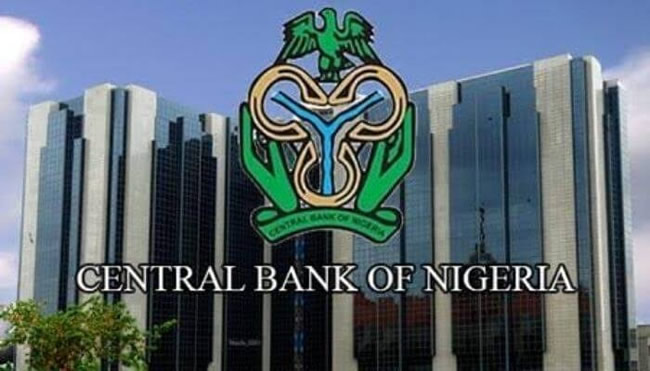Nigerian economy recorded over $1.5bn inflow this month – CBN
The Nigerian economy had an inflow of over $1.5bn in the past few days. This, according to the Central Bank of Nigeria (CBN) indicates that its monetary policy efforts are working. The Bank’s Acting Director, Corporate Communications Department, Hakama Ali, stated these in a statement on Friday. Ali noted that data available to the bank, […]

Your Money is safe in the bank – CBN assures Nigerians
The Nigerian economy had an inflow of over $1.5bn in the past few days.
This, according to the Central Bank of Nigeria (CBN) indicates that its monetary policy efforts are working.
The Bank’s Acting Director, Corporate Communications Department, Hakama Ali, stated these in a statement on Friday.
Ali noted that data available to the bank, indicated that the inflows resulted from a concerted effort to stabilise the foreign exchange market.
- Emefiele led cbn intervention programmes, saved Nigerian economy – constitutional lawyers tackle akpabio
- Tinubu’s economic team
She said the naira has also continued to record gains in the Autonomous Foreign Exchange market, as it traded at N1,309/$1 as against N1,611/$1 in the second week of March 2024.
Ali noted that Thursday’s rate signified that the naira was headed in the right direction.
She assured that the Yemi Cardoso-led CBN remained committed to ensuring the stability of the market, and the appropriate pricing of the naira against other major currencies worldwide.
This comes on the heels of the CBN’s Monetary Policy Committee (MPC) announcement of a two-percent increase in its benchmark rate, from 22.75 per cent to 24.75 per cent on March 26, 2024.
The Governor, Olayemi Cardoso, during his post-meeting briefing, also reiterated that the CBN had cleared all verified foreign exchange backlog, underscoring the fact that liquidity would improve in the foreign exchange market.
On March 27, 2024, the Bank conducted the Nigerian Treasury Bills (NTBs) auction of N1.64trn, at stop rates of 16.24 per cent, 17 per cent, and 21.124 per cent for the 91-day, 182-day, and 364-day tenors, respectively.
The decision to increase the interest rate raised lots of concern among citizens and economic experts.
But Cardoso said the bank’s decision was intended to stabilise the economy by bringing the interest rate at par with the current inflation in the country.
The governor said: “While the increase in interest rate may have tendencies toward strangulating the economy, with the foreign exchange rate coming down, that also helps to moderate it overall.
“And as I said earlier, you would expect that this would not be too long drawn; at least I would hope so. We are getting towards a situation where the exchange rate is moderating, and we are expecting it to moderate, and then it finds a level that, quite frankly, is sustainable.
“This would involve huge collaboration with the fiscal side because a lot of that cannot just rely on the monetary side alone.”
